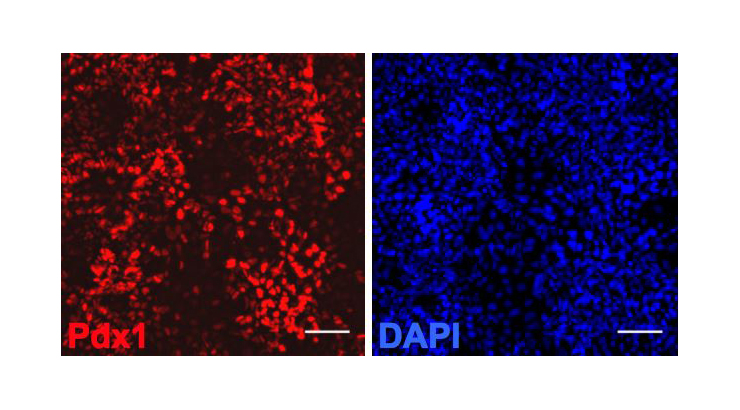Generation of Human Pancreatic Progenitors from Pluripotent Stem Cells
ID# 2018-4800
Technology Summary
Penn State researchers have recently developed small molecule-based methods of using human pluripotent stem cells (hPSCs) as a source to generate pancreatic progenitors (PPs) and insulin-producing beta cells for disease modeling and treatment of type 1 diabetes (T1D). Several multistep differentiation protocols designed to mimic in vivo pancreatic organogenesis have been successfully developed for pancreatic differentiation without the need of growth factors to guide cell differentiation. Accordingly, this technology allows for large-scale and cost-effective production of quality-controlled PPs and beta cells from hPSCs for use in cell therapy and drug discovery in chemically defined, growth-factor-free differentiation systems. The picture above illustrates growth-factor-free differentiation of hPSCs to PDX1 + PP cells.
Application & Market Utility
The present invention is a growth-factor free protocol that generates PP cells by optimizing the definitive endoderm (DE) differentiation under growth-factor-free conditions, followed by growth-factor-free differentiation of DE cells to PP cells. Furthermore, this invention is robust and efficient for multiple hPSC lines. As a result, this technology enables cost-effective and reproducible production of pancreatic cells with high efficiency suitable for cell therapy, drug discovery, research, and/or diabetes treatment.
Next Steps
Seeking research collaboration and licensing opportunities.

